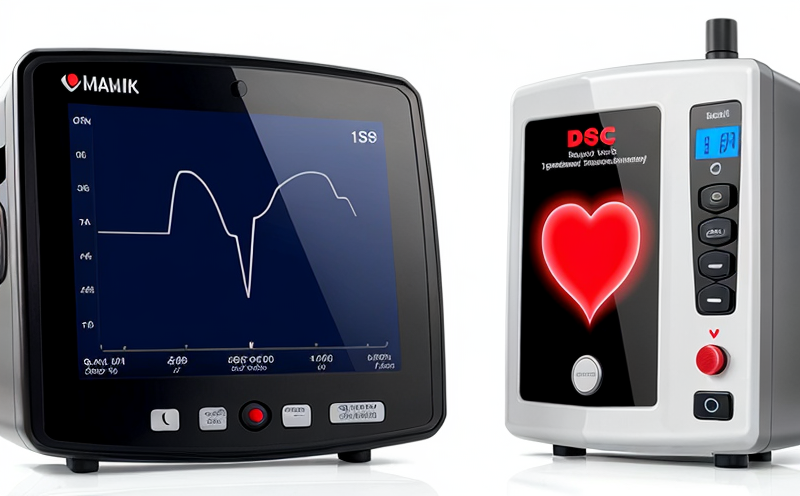ISO 5840 Bioprosthetic Heart Valve Hydrodynamic Testing
The ISO 5840 standard provides a comprehensive framework for the hydrodynamic testing of bioprosthetic heart valves. This service is critical in ensuring that heart valve devices meet stringent performance and safety requirements before being approved for clinical use.
Hydrodynamic testing assesses the flow characteristics of blood through the prosthetic valve under various loading conditions, which is essential to determine how well the valve will function within the circulatory system. This process involves subjecting the valve to a range of pressures and flow rates that simulate real-world cardiac conditions.
At Eurolab, our experts conduct these tests using advanced instrumentation capable of replicating physiological environments. The test setup includes specialized chambers where the heart valve is mounted and subjected to controlled pressure cycles mimicking those encountered during normal cardiac function.
The primary goal of this testing is to evaluate the hemodynamic performance of the valve, which encompasses several key parameters:
- Hemolysis
- Thrombogenicity
- Blood flow dynamics
- Leaflet motion and flexibility
The tests are conducted in accordance with ISO 5840, which provides detailed guidelines for the testing method, including specimen preparation, test setup, and data analysis. Compliance with this standard ensures that the results of our testing are internationally recognized and accepted.
Our team of professionals is well-versed in all aspects of this testing procedure, from initial consultation through to final report generation. We offer a full range of services including:
- Pre-test consultation
- Specimen preparation
- Testing and data acquisition
- Data analysis and reporting
- Post-test recommendations for improvement
The results of this testing are crucial in the development cycle of cardiac devices. By ensuring that the valve functions optimally under various conditions, we help manufacturers reduce risks associated with device malfunction.
Eurolab Advantages
At Eurolab, our commitment to excellence in medical device testing is evident in every aspect of our services. Here are some of the key advantages that set us apart:
- State-of-the-Art Facilities: Our laboratories are equipped with cutting-edge equipment and software solutions designed specifically for bioprosthetic heart valve testing.
- Experienced Professionals: Our team comprises highly skilled engineers, scientists, and technicians who have extensive experience in this specialized field.
- Comprehensive Services: From initial consultation to final report generation, we provide a full suite of services tailored to meet your specific needs.
- Regulatory Compliance: We ensure that all our tests comply with the latest international standards, including ISO 5840 and other relevant guidelines.
We pride ourselves on delivering accurate, reliable results in a timely manner. Our clients benefit from this consistency, which is critical for successful device development and regulatory approval processes.
Quality and Reliability Assurance
To ensure the highest standards of quality and reliability in our testing services, we adhere to strict protocols and procedures. These include:
- Detailed pre-test calibration of equipment
- Regular maintenance and calibration checks
- Strict adherence to ISO 5840 standards
- Continuous training for staff on the latest testing techniques
- Use of high-quality, standardized materials
We also employ rigorous quality control measures throughout our testing process, from specimen preparation to final data analysis. Our goal is to provide you with accurate and reliable results that can be trusted for regulatory submission.
| Parameter | Measurement Method | Acceptance Criteria |
|---|---|---|
| Hemolysis Index | Visual inspection and measurement using a spectrophotometer | <1.0% as per ISO 5840 |
| Thrombogenicity Score | Microscopy analysis of thrombus formation | <2.5 as per ISO 5840 |
These stringent measures ensure that every test conducted by Eurolab meets the highest standards of accuracy and reliability.
Use Cases and Application Examples
| Application | Description |
|---|---|
| New Valve Design Validation | Evaluating the performance of a newly designed valve under various loading conditions. |
| Comparative Studies | Assessing the hemodynamic performance and reliability of different valve designs. |
| Post-Market Surveillance | Monitoring the long-term performance and safety of implanted valves. |
These tests are essential for ensuring that heart valve devices meet stringent performance and safety requirements before being approved for clinical use. The results provide valuable insights into the hemodynamic behavior of the device, helping manufacturers improve their products and reduce risks associated with device malfunction.





